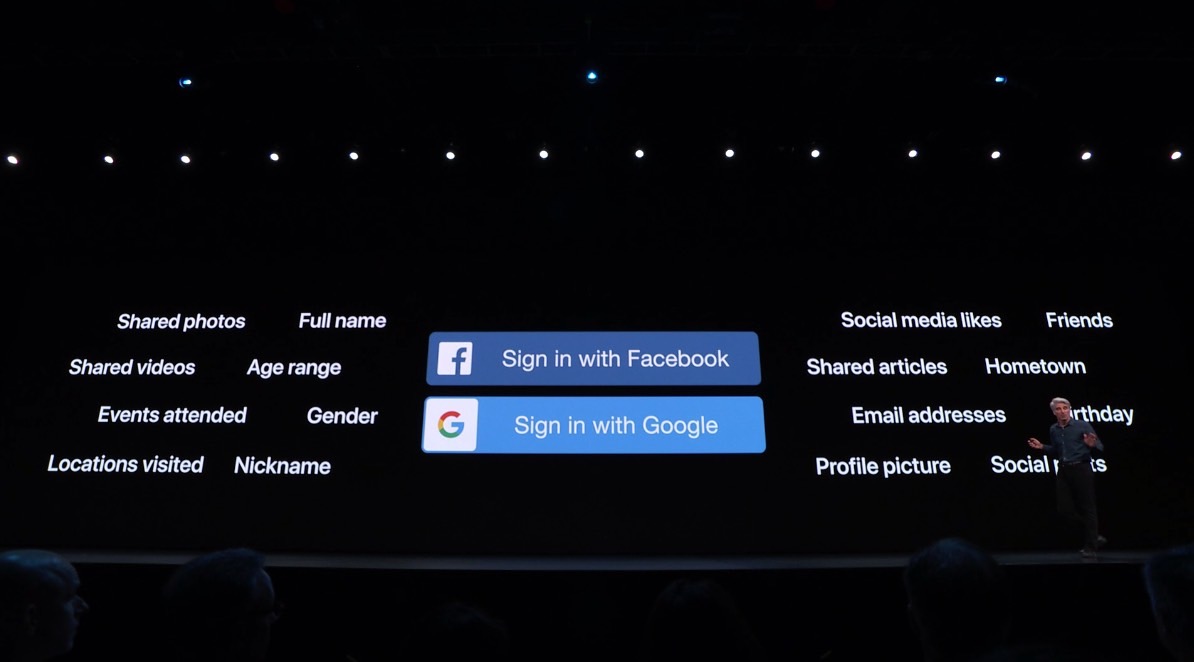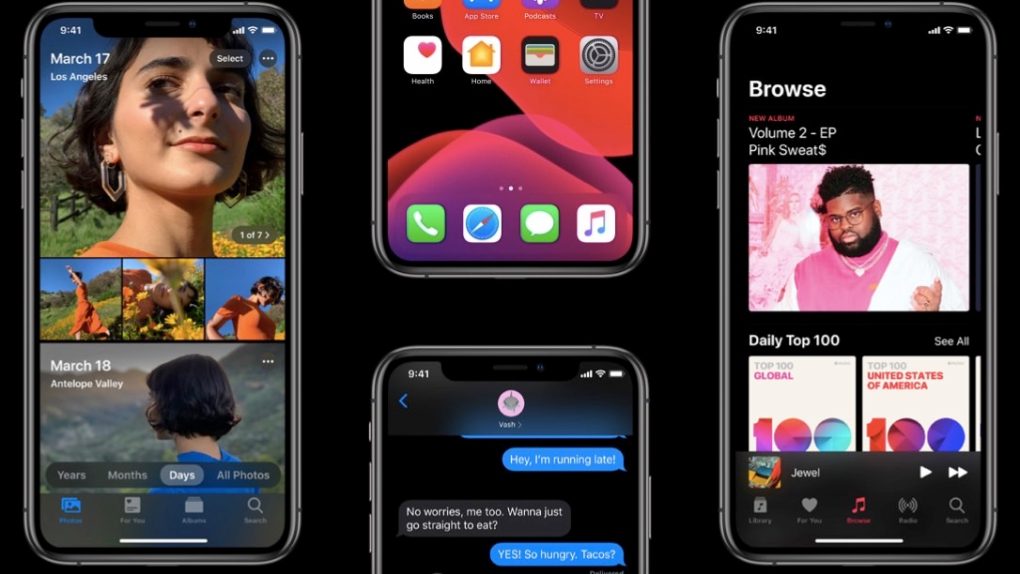Apple unveiling its “Sign In with Apple” button during its iOS 13 presentation at WWDC on Monday was arguably one of the most exciting moments of the keynote. Similar in design and functionality with the same login buttons that we keep seeing around the web and in apps with Google and Facebook logos on them, the Apple login button is a lot more powerful when it comes to protecting user privacy. And privacy was one of the highlights of the press conference, with Apple insisting time and again that its products do not collect data unlike competitors, and the user is in charge of everything. Since then, it was discovered that Apple instructs developers who support Google and Facebook logins also to use ‘Apple’s and give it top placement in their apps. And somehow ‘that’s a bad thing?
Apple updated the App Store Review Guidelines to include details about Sign in with Apple:
Sign In with Apple will be available for beta testing this summer. It will be required as an option for users in apps that support third-party sign-in when it is commercially available later this year.
On top of that, Reuters reports, Apple has asked developers to position the button right on top of Google and Facebook login buttons.
Some people see these moves as bad and are criticizing Apple for exerting its power over developers, especially at a time when ‘Apple’s App Store practices are getting more and more attention.
But everyone seems to be forgetting that Apple can enforce whatever rules it deems necessary to ensure the security of its users. If an app supports Google and Facebook sign-ins, then it makes absolute sense to have an Apple login button in there as well. And that button will be a lot easier to add to the ‘app’s UI, so that ‘shouldn’t even be a topic of discussion.
Just as you log into apps with Google with Facebook, you should be able to do it with Apple too, especially considering all the extra privacy-friendly features the login button has, like the ability to generate an infinite number of unique email addresses to protect your real email. Or the fact that it ‘doesn’t send extra data about you to either Google or Facebook. Or the fact that it’s all tied to Face ID/Touch ID, which means everything both secure and super convenient.

Apple enforcing the adoption of its login button is the only way to increase its popularity, and educate iPhone, iPad, and Mac users that Apple logins are a thing.
Yes, nobody forced any app developer to go for Google and Facebook logins. They were convenient, and ‘that’s why they became so popular, to the point that ‘they’re login options virtually everywhere as an alternative to creating a new online account.
Because it all takes place on devices that Apple makes, iPhones and iPads without which these apps ‘wouldn’t even exist, it also makes sense for Apple to make its login button mandatory and give it prime placement. Remember that Apple only wants its login button in apps that also support Google and Facebook, not in all apps. Similarly, it ‘won’t be able to force web apps to adopt its button, nor is it trying to.
Google and Facebook ‘didn’t comment on the move, but Google told Reuters that it does not require the use of ‘Google’s login button for apps in its Play Store on Android devices. But ‘that’s such a narrow way to look at things, because, button or not, Google already tracks so much of what you do on an Android phone. It also implies that Apple requires it on all apps, which is not the case.

Also, ‘let’s not forget here that Google has been forcing its partners to include many of its apps, like Search, Chrome, and Maps, on Android devices so that the Play Store app could also be installed on the same smartphones and tablets. ‘That’s also a move that shows the power of a tech giant like Google, and a lot worse than ‘Apple’s insistence about its login button. And ‘it’s a move that got Google into various antitrust troubles, with the company losing two such battles over Android in Russia and the European Union. As a result, Google is facing fines amounting to several billions of dollars, with the vast portion of that going to the EU. Also, Google was forced to offer choice to European users when it comes to default search apps and internet browsers on Android devices.
Finally, ‘there’s no question in my mind that, as a user of apps where ‘I’d log in using Google or Facebook, that ‘I’d replace it in a heartbeat with Apple, as soon as it becomes available.








